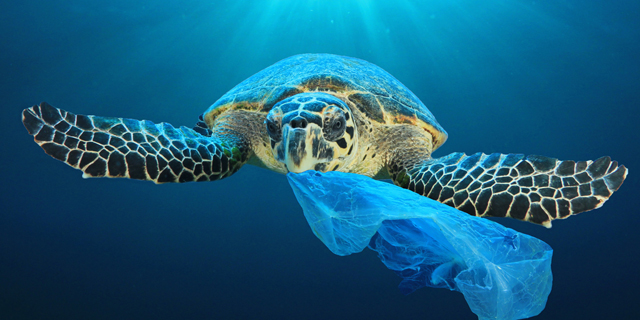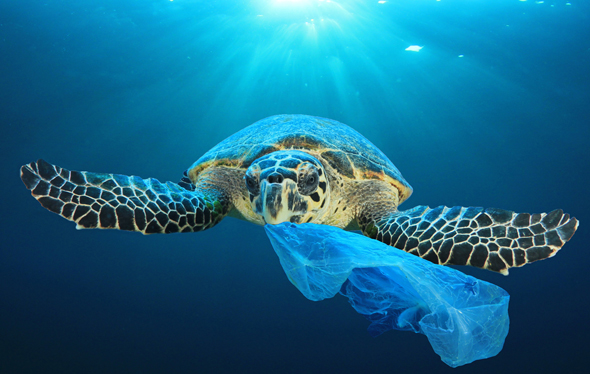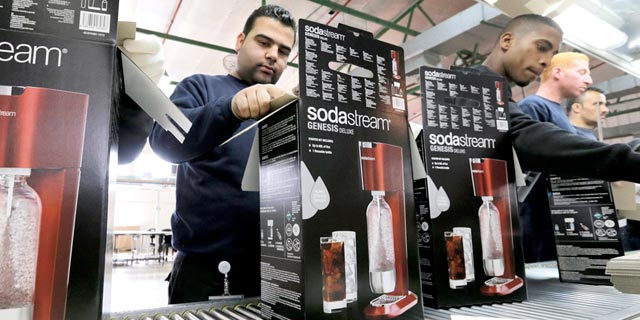
List
From Edible Shot Glasses to Biodegradable Plastics: Eight Companies Reducing Plastic Waste
Tipa, SodaStream, and Incredibowl are some of the Israeli companies using technology to try and counteract Israel's bad plastic habit
Adi Pick | 17:44, 21.07.19
As the world approaches what some scientists say is the point of no return in terms of environmental damage, some countries are enacting legislation—such as the banning of plastic straws—to reduce plastic pollution. When it comes to plastic awareness, Israel lingers behind.
Israelis are still infatuated with single-use plastics,
with many families using them regularly at home instead of conventional tableware. To make matters worse, most municipalities in Israel do not offer regular recycling services.
Some Israeli companies, however, are using technology to try and counteract Israel's bad plastic habit. Each of the following eight companies presents a different approach to solving the country's, and the world's, reliance on disposable plastics.
Tipa
Year founded: 2010Funding to date: nearly $24 million
TIPA Corp Ltd. manufactures and designs plastic-like alternatives to conventional plastic bags and packaging. The company's packaging, including their laminates and labels, fully disintegrate under compost conditions—high humidity, high temperature, and the presence of microorganisms—within 180 days. Depending on the type of packaging and shape, the compostable plastic is made up of 20% to 60% plant-based ingredients, such as non-genetically modified corn. TIPA's packaging extends beyond the supermarket—the company produces packaging for fashion retailers, including Stella McCartney, Gabriela Hearst, and Mara Hoffman. Headquartered in central Israel, TIPA employs about 40 people. Bram Industries Year founded: 1981Company is listed on the Tel Aviv Stock Exchange
Based in the southern Israeli town of Sderot, Bram Industries Ltd. produces biodegradable industrial packaging for the food industry, as well as a line of biodegradable disposable dishes and home products such as plastic kitchenware, lunch bags, and cookware. The company's products can be found at retailers such as Walmart, Target, Home Depot, and Bed, Bath & Beyond. In 2016, Bram Industries opened Bramli USA, a manufacturing and distribution plant in Savannah, Georgia. The company has a market capitalization of NIS 60.3 million ($17.04 million). Solutum Year founded: 2017Funding to date: undisclosed
Solutum Ltd. develops plastic-like bags that fully dissolve in water. Last month, the company won Tel Aviv University's Coller School of Management third annual startup competition. Solutum received a $100,000 investment from Jeremy Coller, the school's namesake, who serves as chief investment officer at London-based private equity firm Coller Capital Ltd. SodaStream Year founded: Acquired in 1998 by Israeli company Soda-ClubAcquired by PepsiCo in 2018 for $3.2 billion
While SodaStream International Ltd. is known for offering at-home carbonated beverage makers, the company advocates strongly for the discontinuation of single-use plastic bottles. SodaStream is known for its somewhat controversial ad campaigns condemning the use of throw-away plastics. Its 2016 commercial featured Game of Thrones actors shaming customers who opt to buy single-use water bottles. Following Sodastream's recent acquisition, retiring CEO Daniel Birnbaum said that he credits PepsiCo with understanding the growing demand for sustainable products. The company also develops and markets its own reusable bottles. Incredibowl Year founded: 2017Funding to date: undisclosed
Incredibowl set out to reduce reliance on single-use plastic plates by developing alternative tableware products you can eat. The company offers three main products: edible shot glasses and both savory and sweet bowls. Incredibowl's edible tableware is vegan, kosher, and safe for those allergic to lactose, eggs, and gluten, according to the company's website. UBQ Year founded: 2012Funding to date: $30 million
Tel Aviv-based UBQ Materials Ltd. has patented a process of converting food waste, soiled cardboard, paper, and mixed plastics into reusable bio-based plastic-like material, a substitute for conventional oil-based plastics. UBQ takes the unsorted waste and dries, then shreds it, turning it into a homogenous, almost molecular substance that can serve as feedstock for new products. 3PLW Year founded: 2015Funding to date: $8 million
Central Israel-based 3PLW Ltd. is another company developing a system for deriving biodegradable plastic-like material from regular trash. 3PLW's technology converts organic waste into feedstock in a process designed to decrease the production costs of bioplastics.Clicko-Brick
Year founded: 2016Funding to date: undisclosed
Clicko-Brick develops interlocking, modular plastic containers suitable for holding liquids. The containers can then be reused as multipurpose building blocks for walls. Clicko-Brick's containers come at a variety of sizes from 250 milliliters to 4.5 Liters.


No Comments Add Comment